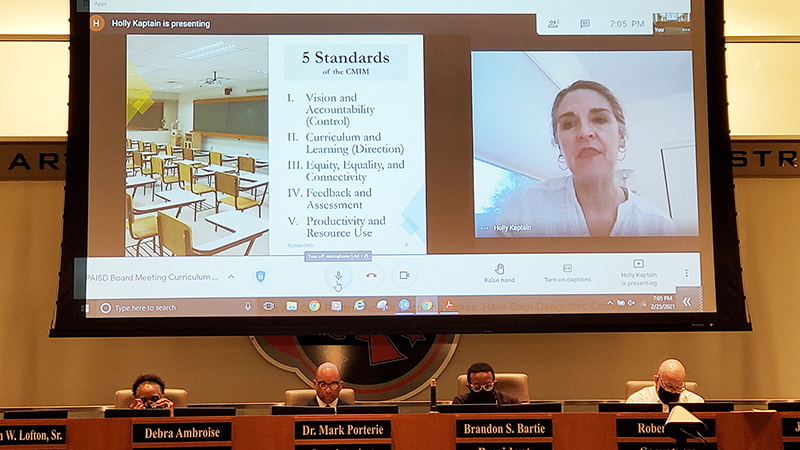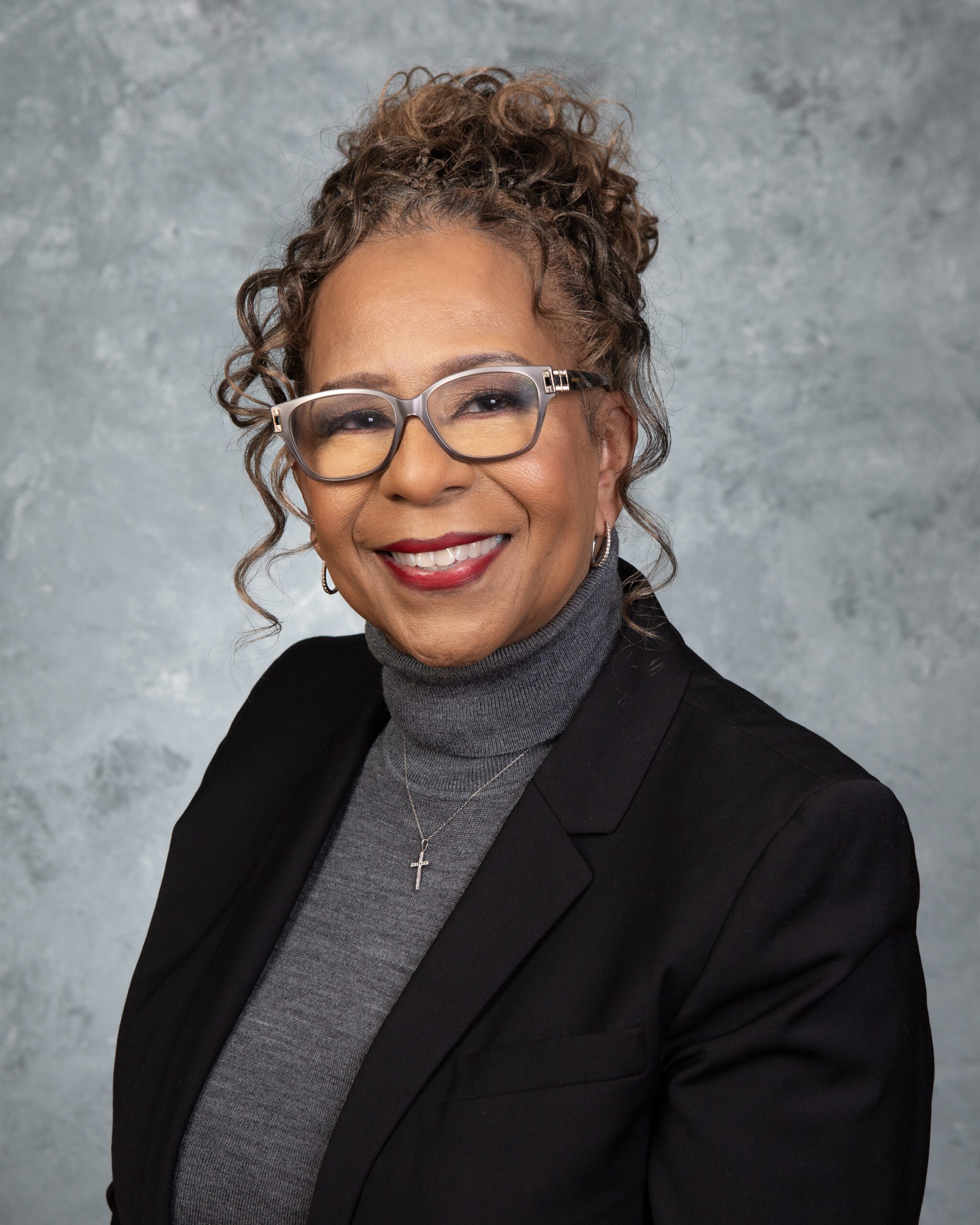“We know we cannot teach the same way we taught pre-COVID” – PAISD audit to address educational gaps
Published 12:35 am Saturday, February 27, 2021

- Holly Kaptain, PhD, of Iowa-based Curriculum Management Solutions speaks with Port Arthur Independent School District trustees and officials remotely about an upcoming curriculum audit. (Mary Meaux/The News)
|
Getting your Trinity Audio player ready...
|
A gap in learning in Port Arthur Independent School District due to the pandemic is leading officials to take another look at educational needs.
This second look will be in the form of a curriculum audit.
“We know we cannot teach the same way we taught pre-COVID,” Superintendent Mark Porterie, PhD, said following this week’s school board meeting. “As I said, the gap has widened and we have to figure out how to close these gaps. We’re going to have to teach differently than we did before, and it’s a perfect time to do that. We can do a better job at teaching our children.”
Porterie said the audit would uncover a number of topics.
“What is the culture and climate of the district? How do we, as a district, deliver instruction virtually to prekindergarten to 12th grade? Is it vertically aligned? Are all of the non-negotiables in the district being followed or are we doing the same thing but at a different level? Are we doing it well? Are we working well?” he said.
The board of trustees heard, virtually, from Holly Kaptain, PhD, of Iowa-based Curriculum Management Solutions.
Kaptain has been doing curriculum audits for more than 25 years and led more than 35 projects in Texas and around the country.
She explained there are five standards of the CMIM; vision and accountability (control), curriculum and learning (direction, equity, equality and connectivity), feedback and assessment and productivity and resource use.
The gap
Porterie explained during the meeting that students are disengaged with school and are not “where we can see them.”
“And we’ve always said virtual learning, remote learning was not the best form of delivery of instruction for our children,” he said. “I’m not talking about any other district but the Port Arthur Independent School District. Virtual learning was not the best tool, but here we are. We have to figure out how we’re going to recapture our students, and, not so much, we’re gong to have to change our verbiage from ‘remediation to acceleration.’ We have to accelerate our students to learn. There are a lot of things we missed now we’re trying to figure out how to do it.”
PAISD has toggled back and forth from virtual learning to in-person since COVID-19 hit the area last year. When cases of the disease pop up, schools are closed for cleaning and students flip to virtual learning.
“When you come to school everyday you’re in a routine, but when you’re able to stay at home, even if you’re on the computer, it’s not the same,” he said. “You’re disengaged from people. You’re disengaged from teachers. You’re disengaged from students. So we have a communication concern. We have a learning concern, we have a delivery of instruction concern, we have an ‘are you eating properly’ concern.”
The audit
Kaptain said a team of seven to eight members will take part in the audit with four on site and the others taking part virtually.
Kaptain said they always take into account the specific population and the population’s needs within the system — which is why she is an auditor who is very passionate about lower income districts that have high percentages of students of color.
Trustee Robert Reid voiced a concern at the possible difficulty in gauging how successful teachers are without being able to capture the “full picture” of what has taken place between teachers and students due to the pandemic.
Kaptain assured the board they take into account the virtual learning with the blended learning as it is about the system’s responsibility.
The teachers’ roles and work may have changed due to the pandemic, but what hasn’t changed is the curriculum documents and resources.
“Good learning is still good learning and effective education is till effective education, whether done virtually or in person,” she said. “The challenges people face in virtual learning are very real. We 100% get that. We will also be suggesting ways to improve.”
Board president Brandon Bartie believes the district is going to get good feedback on the routes needed to take in order to serve the students and of the changes they may need to make.
The audit team will begin March 8 and keep in contact with district officials while here. A draft report should be completed in three months.





